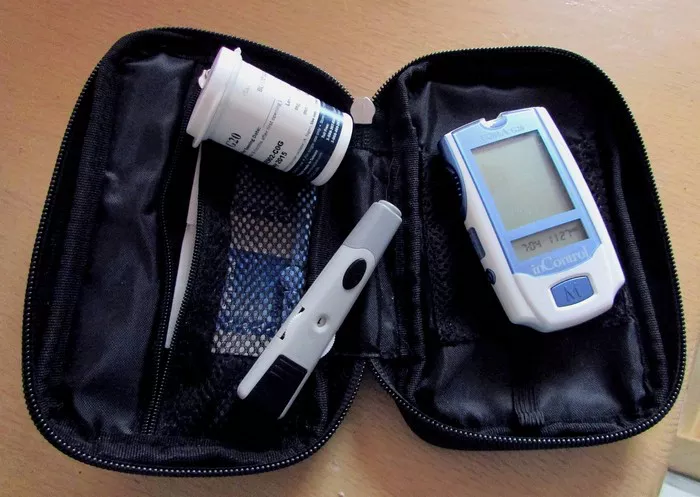Gestational diabetes mellitus (GDM) is a form of diabetes that develops during pregnancy, affecting approximately 9 out of every 100 pregnant women. While the exact cause of gestational diabetes is not fully understood, several factors contribute to its development.
In this comprehensive guide, we’ll delve into the potential causes of gestational diabetes, exploring genetic predispositions, hormonal changes, lifestyle factors, and other contributing elements that play a role in this condition.
Understanding Gestational Diabetes
Before delving into its causes, let’s briefly understand what gestational diabetes is. Gestational diabetes occurs when the body cannot produce enough insulin to meet the increased demands of pregnancy, resulting in high blood sugar levels. This condition typically develops around the 24th to 28th week of pregnancy and can pose risks to both the mother and the baby if left unmanaged. While gestational diabetes usually resolves after childbirth, it increases the risk of developing type 2 diabetes later in life for both the mother and the child.
1. Genetic Predisposition
Genetic predisposition plays a significant role in the development of gestational diabetes. Women with a family history of diabetes, particularly type 2 diabetes, are at a higher risk of developing gestational diabetes during pregnancy. Genetic factors influence how the body processes glucose and insulin, affecting insulin sensitivity and secretion. While genetic predisposition alone does not cause gestational diabetes, it can increase susceptibility when combined with other risk factors such as obesity or a sedentary lifestyle.
2. Hormonal Changes
During pregnancy, the placenta produces hormones that help sustain the pregnancy and support fetal growth. However, some of these hormones, such as estrogen, progesterone, and human placental lactogen (hPL), can also interfere with insulin action, leading to insulin resistance. Insulin resistance occurs when the body’s cells become less responsive to insulin, resulting in elevated blood sugar levels.
As pregnancy progresses, insulin resistance naturally increases to ensure an adequate supply of glucose to the developing fetus. In women with gestational diabetes, this increase in insulin resistance may exceed the body’s ability to compensate, resulting in high blood sugar levels.
3. Pancreatic Insufficiency
Another potential cause of gestational diabetes is pancreatic insufficiency, where the pancreas cannot produce enough insulin to meet the body’s demands during pregnancy. While insulin resistance contributes to the development of gestational diabetes, inadequate insulin production exacerbates the problem, leading to elevated blood sugar levels. Factors such as genetic predisposition, hormonal changes, and metabolic stressors can impair pancreatic function, reducing insulin secretion and exacerbating glucose intolerance.
4. Obesity and Metabolic Syndrome
Obesity and metabolic syndrome are significant risk factors for gestational diabetes, as they contribute to insulin resistance and impaired glucose metabolism. Excess body weight, particularly abdominal fat, increases the body’s resistance to insulin, making it more challenging for cells to absorb glucose from the bloodstream. Women with pre-existing obesity or metabolic syndrome are at a higher risk of developing gestational diabetes during pregnancy. Additionally, excessive weight gain during pregnancy can further exacerbate insulin resistance and increase the likelihood of developing gestational diabetes.
5. Lifestyle Factors
Dietary choices and physical activity levels play a crucial role in the development of gestational diabetes. A diet high in refined carbohydrates, sugars, and unhealthy fats can contribute to elevated blood sugar levels and insulin resistance.
Conversely, a balanced diet rich in fruits, vegetables, whole grains, lean proteins, and healthy fats can help stabilize blood sugar levels and support overall health during pregnancy. Sedentary lifestyles and inadequate physical activity can also increase the risk of gestational diabetes by promoting weight gain and insulin resistance.
Conclusion
In conclusion, gestational diabetes is a multifactorial condition influenced by a combination of genetic predisposition, hormonal changes, pancreatic insufficiency, obesity, metabolic syndrome, and lifestyle factors. While some risk factors, such as genetic predisposition, cannot be modified, others, such as dietary choices and physical activity levels, can be addressed through lifestyle modifications and proactive management strategies.
By understanding the complex interplay of these factors, healthcare professionals can develop personalized approaches to prevent, detect, and manage gestational diabetes effectively. Early detection, comprehensive prenatal care, and lifestyle interventions are essential for optimizing maternal and fetal outcomes and reducing the long-term risks associated with gestational diabetes.

























